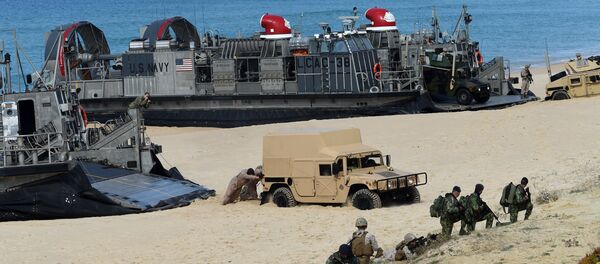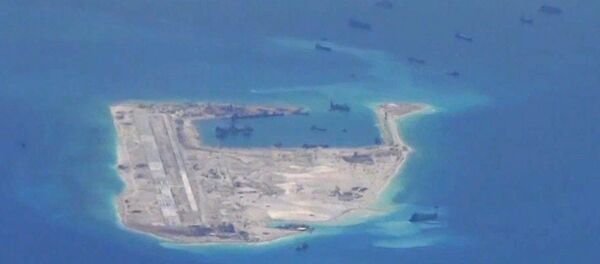The infamous F-35 fighter program has been a financial boondoggle. Already costing over $1 trillion to develop, the US Air Force is about to spend another $500 million to upgrade hangar facilities at the first air base chosen to host the new aircraft. With one aircraft barely off the ground, the Pentagon is prepared to spend another estimated $55 billion to produce a next-generation bomber.
It’s unfettered spending like this that leads Col. John A. O’Grady to compare the Pentagon to failed companies like Enron and Lehman Brothers.
“Today, the [US] Defense Department is in alarmingly similar straits – except that the stakes are far higher,” he writes for Defense One.
“If the nation should become unwilling or unable to fund a military that can remain globally present, the effects on global stability would be similar to that of the failure of financial giants and mainstays on the world’s economy: devastating.”
While the Pentagon is focused on expensive projects, it has developed a habit of keeping the maintenance costs of those flashy toys off of its books.
"The longer this situation remains unaddressed, the more likely that the remaining options will be bad and worse," O’Grady writes. "They must act responsibly now to avert the impending crash of the wave."
But while private companies like Enron can declare bankruptcy after failing, the Defense Department does not have this option.
"Until these problems are resolved, DOD will gradually be forced to do less, delay or cut problems, reduce readiness, and assume greater strategic and operational risk," he writes.
"The implications for national security and by extension the world order of which the US is largely a guarantor are too important to ignore."
Of course, others might argue that a financial crisis which forces the Pentagon to take a reduced role on the world’s stage would have a positive effect.
In the South China Sea, for instance, Beijing has accused Washington of escalating tensions over the latter’s patrols of China’s artificial islands in the Spratly archipelago. In Eastern Europe, the US and NATO have carried out aggressive exercises along Russia’s border.
"[These] mega-exercises [increase] insecurity on our planet and especially our insecurity as it turns us into the main stage for their war operations," pacifist group War Resisters’ International wrote in a statement last September. "They are bringing the war to our homes, they turn us into direct collaborators with the violence of NATO…"
"They encourage terrorism, social division, racism and fear."





